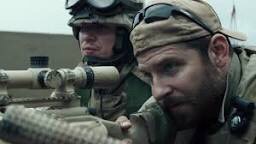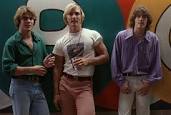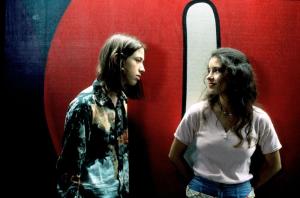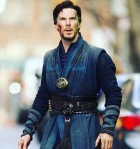For ten year, there was a cunning man who eluded the detection of law enforcement officials while transporting 100-300 kilos of cocaine for the Sinaloa cartel. He haD inspired countless urban legends among drug traffickers who were astounded by the laudable feats of this mysterious figure. A prolific crime boss like Joaquin Guzman (“El Chapo”) was blessed to have such a talent on his side.
What if I was to tell you that this infamous drug transporter was a 90-year-old White Daylily planter from rural Indiana?
As the saying goes, truth is stranger than fiction.
At ripe age of eighty-eight, Clint Eastwood doesn’t seem to be planning on moving into a retirement center anytime soon. He’s determined to retain his name and legacy in Hollywood. Clint Eastwood didn’t just direct The Mule, he also played the lead character, Earl Stone, a fictionalized version of the real-life, geriatric drug smuggler named Leo Sharpe.
If Walt Kowalski, coincidentally played by Clint Eastwood, was a Daylily planter forced to become a drug mule, he would be Earl Stone. Both fictional characters are carbon-copies of one another: Old, grumpy, casually-racist White guys who, despite their stubbornness and other pain-in-the-ass traits, can be quite amusing and even quaintly charming. And apparently, Clint Eastwood has a knack for playing such characters.
In the film, Earl Stone is portrayed as a man who thrived in the public scene and craved attention and admiration. Earl was an accomplished horticulturalist who traveled across the country, proudly displaying his famed daylilies.
However, like many men zealously devoted to their careers, Earl often neglected his family. No, he didn’t abandon them like some deadbeat. However, in the words of Mary, Earl’s wife who is portrayed by Dianne Wiest, Earl missed “birthdays, baptisms, school plays graduations, and holidays”. In fact, Earl has missed his daughter’s wedding. Evidently, Earl’s choices have had devastating consequences on his relationships with his family. Iris, his daughter portrayed by Alison Eastwood (Clint’s real-life daughter), cuts ties with him. He doesn’t get invited for Thanksgiving dinners and Christmas gathering. It’s as if he’s a lone bachelor because that’s how he acted all his life.
All good things must come to an end. And that includes Earl’s career. The advent of online retailers in the mid-2000s had rendered Earl’s business obsolete by 2017. Earl is forced to call it quits. Unfortunately, with no income, Earl finds himself unable to help finance his granddaughter’s wedding. Earl’s granddaughter, Ginny, played by Taissa Fermega, had always retained faith in Earl, despite the cynicism of her mother and grandmother. So, it would be a shame for Earl to disappoint her.
By some stroke of pyrrhic miracle, a mestizo-looking guest at Ginny’s pre-wedding party presents Earl with an opportunity. For a very lofty sum of cash, all the old geezer had to do was drive his truck and make deliveries at designated locations.
Sounds easy enough. Drive, make deliveries for tough-looking Latino guys. Then earn the big bucks which can be a tool in slowly regaining respect from his estranged family. The only hard part of the deal was learning how to use those goddamn cell phones!
Yet, Earl Stone, a respected Korean War veteran and (formerly) successful horticulturalist, had become a drug mule before he realized he was a drug mule! And he’s about to get into some major shit!
The Mule could be a parable to illustrate the the loss of one’s identity that coincides with the creative-destructiveness of 21st-century techno-capitalism. Earl’s business had been blossoming for decades. He was the star of numerous conventions. However, during one convention in 2005, when he came across a booth featuring a demonstration of online ordering, Earl became distraught and troubled. He had been introduced to a competitor he couldn’t beat. And Earl’s grave predictions came true by 2017. The “goddamn internet” rendered him a has-been.
With the loss of his business, Earl becomes completely emasculated. He had worked all his life, even at the expense of his familial relationships, and he was left with nothing to show. The highachieving life of the party became an enfeebled nobody. It was under these circumstances that forced him into a new career as a mule.
Eastwood’s direction with the film was tempered and subtle. It wasn’t overdramatized but there were scenes that felt slow, including those featuring Earl driving through the highway while singing along to oldies playing on the radio. Yet Eastwood poignantly captured the heart and soul of this unbelievable story. It’s a bittersweet story of desperation and loss, sprinkles with bits of comic relief and endearing warmth. Overall, the film was an enjoyable ride

 per. Clint Eastwood has continuously proved himself to be a sage in filmmaking. American Sniper is no exception. It was, no doubt, a brilliantly-produced masterpiece. In addition, Bradley Cooper was exceptional in the biographical role of Chris Kyle. In terms of film quality, I have nothing negative to say.
per. Clint Eastwood has continuously proved himself to be a sage in filmmaking. American Sniper is no exception. It was, no doubt, a brilliantly-produced masterpiece. In addition, Bradley Cooper was exceptional in the biographical role of Chris Kyle. In terms of film quality, I have nothing negative to say. is a 1993 coming-of-age comedy set in the suburbs of Austin, Texas in 1976. The film is most notable for launching the careers of Mathew McConaughey and Ben Affleck into stardom. Dazed and Confused was one of many cinematic productions that capitalized off of the nostalgic idealization of the 1970’s that implanted itself in pop culture during the better part of the 1990’s. Sort of like how we, today, are infatuated with anything from the 1990’s.
is a 1993 coming-of-age comedy set in the suburbs of Austin, Texas in 1976. The film is most notable for launching the careers of Mathew McConaughey and Ben Affleck into stardom. Dazed and Confused was one of many cinematic productions that capitalized off of the nostalgic idealization of the 1970’s that implanted itself in pop culture during the better part of the 1990’s. Sort of like how we, today, are infatuated with anything from the 1990’s. to tell. It’s just a bunch of stereotypically rebellious teenagers from the 1970’s idly dawdling from one scene to another. This movie reminded me of That 70’s Show (and I wouldn’t be surprised if That 70’s Show was inspired by Dazed and Confused). However, unlike The 70’s Show, the characters in Dazed and Confused weren’t likeable, nor very interesting.
to tell. It’s just a bunch of stereotypically rebellious teenagers from the 1970’s idly dawdling from one scene to another. This movie reminded me of That 70’s Show (and I wouldn’t be surprised if That 70’s Show was inspired by Dazed and Confused). However, unlike The 70’s Show, the characters in Dazed and Confused weren’t likeable, nor very interesting.